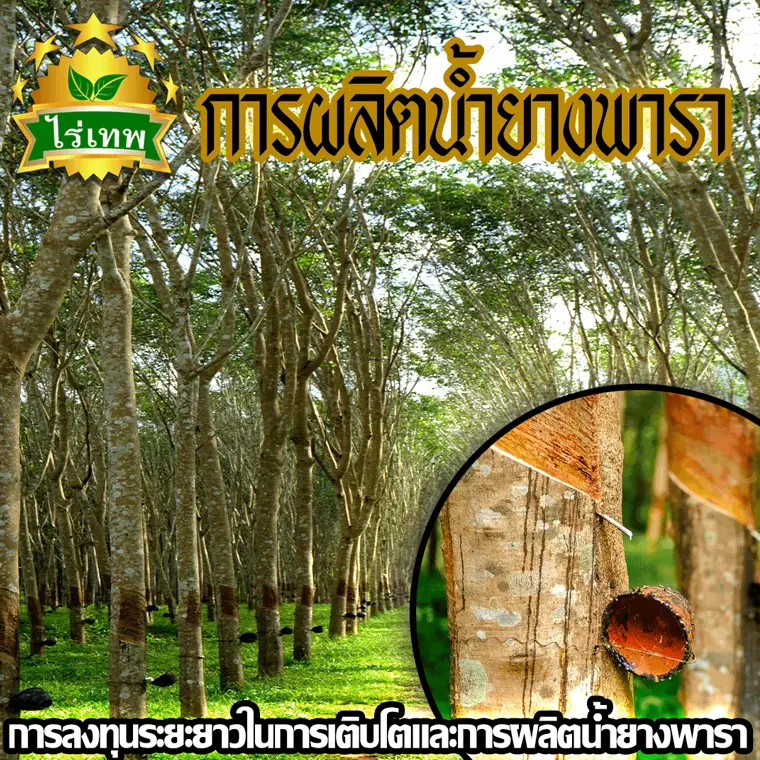No products in the cart.
Uncategorized
Productive Rubber Plantation
Rubber is an important economic plant in Thailand. Produce with a total value of over 100 billion baht. It is also related to at least 6 million farmers. If plantation is done more efficiently, it can be of a great benefit to the country and the rubber planters. This is highly considered as rubber is a type of economic plant that is necessary to promote careers of the large farm owners. This gives them a high end long-term opportunity to develop their farming business.
Senior analyst Economic Intelligence Center The Siam Commercial Bank (SCB EIC) revealed that by 2020, the price of rubber in Thailand is expected to remain at a low level close to that of 2019, with the price of raw rubber sheets at 43-45 baht per kilogram. The price of ribbed smoked rubber with Grade 3 Quality tends to be 46-48 baht per kilogram.
The production of rubber can still be developed. RaiThep found that some farmers still misunderstood the way to manage rubber plantations properly. The obvious is “rubber fertilizer application is not properly formulated, incorrect method and not seasonal.”
We can recommend farmers use the RaiThep – a Plant supplement mix the water directly into the tire, according to the length of the slit around the trunk. Will help solve the problem of disastrous tires. This also increases the percentage of latex flow and the concentration of latex. The RaiThep will help to make the face fluffy and soft. And get a high yield with 100% DRC latex. During the rest of the tire will make the tire full faster, allowing more tapping days in that year as well.
How to use RaiThep for high end yield of rubber plantation?
Should spray RaiThep in the morning before 10 o’clock in the morning or after 5 o’clock, because it is the open stomata and the ratio using 1 sachet per 100 liters of water. Do not make mixed spray water too dark. If the mixture is too dark, it will cause the plant to wilt. For better results, Mixture of spray should be used at least 2 times to see better results. This can manage the rubber plantations before opening and after tapping in accordance with GAP standards (Good Agricultural Practices).
